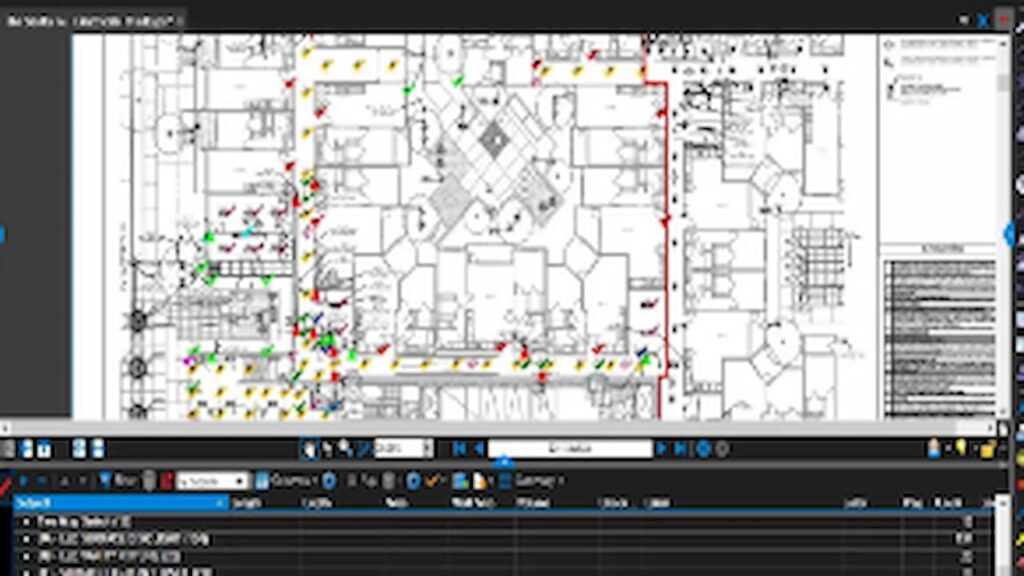Electrical engineering is a branch of engineering that deals with the study, design, and application of electrical systems, equipment, and devices. It covers a wide range of fields, such as power engineering, control systems, electronics, telecommunications, and signal processing. Electrical engineers are in charge of making the technologies that make our modern world work, from making and distributing electricity to building communication networks and computer systems.
1 – Do your electrical plan in AutoCAD by km_mehedig
As an experienced professional in AutoCAD design, I possess expertise in utilizing AutoCAD Release 2000 to 2020 for a wide range of architectural and engineering 2D design and drawings, including those for residential houses, commercial tall buildings, factories, educational institutes, hospitals, and warehouses. In particular, I am well-equipped to provide high-quality electrical lighting and power layout plans for your house. To get started, all I need is your electrical floor plan sketch, image floor plan reference file, architectural CAD drawings file, and any additional details about your project requirements that you can provide.
2 – Do mechanical and electrical mep drawings for building BY km_mehedig
With 20 years of experience in mechanical, electrical, fire protection, and AutoCAD design, I am well-equipped to provide top-notch design work for building projects. I have a proven track record of delivering high-quality designs and drawings within the expected timeframe. Over the years, I have completed numerous projects for various consulting and construction firms, which have honed my skills and expertise in this field. Rest assured that I will provide perfect designs and drawings that meet your specifications and requirements.
3 – Do detail electrical takeoff, cost estimation for all types of projects by Rehantariq11
I will conduct a comprehensive analysis of your entire project, examining each component in detail. Our electrical material takeoff sheet will encompass the major items, including:
- Light fixtures: We will compile a list of all light fittings based on their sizes, types, costs, and installation requirements.
- Conduit: We will determine the number of conduits required for the entire project, their sizes, and their prices, factoring in the installation process required for the conduit.
- Wiring: We will account for different gauges of wiring, lengths of cable and cable trays, and junctions, ensuring that you don’t overlook any electrical wiring costs while bidding.
- Switches: We will calculate the total counts of switches, including power points, light switches, appliance switches, and wiring requirements for switches.
- Switchboards: We will determine the total number of switchboards needed, their sizing, and the location of wiring to and from switchboards for the entire project.
If you need help preparing an electrical estimate, don’t hesitate to contact QTO Estimating. I will be happy to review your drawings or plans and provide you with a thorough and detailed electrical takeoff.
FAQs
What is something electrical engineers know that others don’t?
Electrical engineers possess specialized knowledge in the area of electrical systems and devices that others may not have. Here are a few examples of things electrical engineers may know that others may not:
Understanding of the physics of electricity: Electrical engineers have a deep understanding of the fundamental principles that govern the behavior of electricity, including how it flows, how it is generated, and how it can be controlled.
Knowledge of circuit design and analysis: Electrical engineers are well-versed in the design and analysis of circuits, which are the building blocks of electrical systems. They know how to create, test, and optimize circuits to ensure that they function properly.
Expertise in power systems: Electrical engineers are knowledgeable about power systems, including power generation, transmission, and distribution. They can design and optimize power systems to ensure that they are reliable, efficient, and cost-effective.
Mastery of software and programming: Electrical engineers are proficient in using software and programming languages to design, simulate, and analyze electrical systems. They know how to use tools such as AutoCAD, MATLAB, and LabVIEW to develop and test new technologies.
Overall, electrical engineers possess a unique skill set that enables them to design, develop, and optimize electrical systems and devices, making them valuable contributors to a wide range of industries and applications.
How hard is electrical engineering?
he difficulty of electrical engineering can vary depending on various factors, such as your aptitude for math and science, your study habits, and the specific program or courses you are taking. Generally, electrical engineering is considered a challenging field of study that requires a strong foundation in mathematics and physics, as well as a solid grasp of electrical concepts and principles.
In addition, electrical engineering programs can be rigorous and demanding, with a heavy workload and a focus on technical coursework. Students are often required to take advanced classes in areas such as circuit analysis, control systems, and digital signal processing, which can be challenging for some students.
Despite its difficulty, electrical engineering can be a rewarding and fulfilling career for those who are interested in the field. Many electrical engineers work on cutting-edge technologies and projects, such as renewable energy, artificial intelligence, and advanced medical devices, which can be intellectually stimulating and exciting. With dedication and hard work, it is possible to succeed in electrical engineering and make a positive impact in the world.
Which is better, mechanical or electrical engineering?
Both mechanical and electrical engineering are highly regarded fields with unique skill sets, job opportunities, and career paths. Deciding which is better depends on your interests, skills, and career goals.
Mechanical engineering focuses on the design, development, and maintenance of mechanical systems, including machines, structures, and devices. This can include work on engines, robotics, and energy systems. Mechanical engineers often work in industries such as automotive, aerospace, and manufacturing.
Electrical engineering, on the other hand, focuses on the design, development, and maintenance of electrical systems, including circuits, electronics, and communications systems. This can include work on power grids, computer hardware, and telecommunications networks. Electrical engineers often work in industries such as telecommunications, energy, and computing.
When it comes to which is better, it ultimately depends on your personal interests and career goals. If you enjoy working with physical objects and have a passion for building and designing mechanical systems, then mechanical engineering may be the better choice for you. If you have a strong interest in electronics, computers, and communications systems, and want to design and optimize these systems, then electrical engineering may be the better choice.
In the end, both mechanical and electrical engineering offer exciting career opportunities, challenging work, and the opportunity to make a positive impact on society.
Final thought
Electrical engineering is an essential field that underpins much of the modern world. The work of electrical engineers impacts our daily lives in countless ways, from providing us with access to electricity and modern communication systems to enabling the development of advanced technologies. The field continues to evolve rapidly, with new discoveries and innovations driving progress in areas such as renewable energy, smart grids, and artificial intelligence. As such, electrical engineering is a crucial discipline that will remain important for many years to come.



